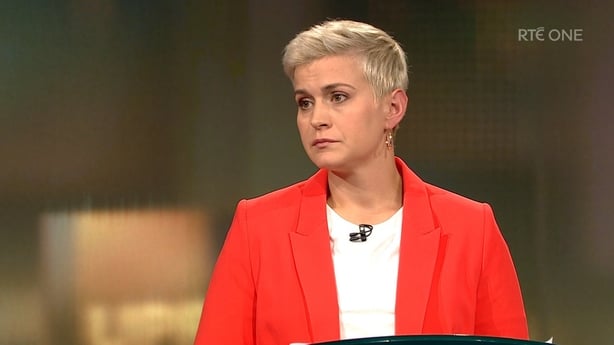The European Commission has been strongly criticised for what has been described as a "Trump-like" decision to abandon plans for EU-wide anti-discrimination laws.
Proposals to pursue the Horizontal Anti-Discrimination Directive have been left out of the Commission's work programme for 2025, similar to a programme for government for the new European Commission, which was published yesterday.
The Commission proposed the laws back in 2008, which would protect the principle of equal treatment irrespective of age, disability, race, sexual orientation or religious belief.
Such protections are already in place in employment laws. But this proposal is for a "horizontal" directive meaning protections would extend to a wide range of environments and settings, including public buildings, transport, hospitals and schools.
The regulation has so far been blocked by the European Council - made up of individual member states - but the Commission has persistently committed to it and proceeded with negotiations to implement it until now.
Fine Gael MEP for Midlands-North-West Maria Walsh said "real progress" had been made, and the decision by the Commission is "deeply regrettable".
She is among the negotiators on the regulations from the European Parliament, who are writing to the Commission President Ursula von der Leyen, Commissioner for Equality Hadja Lahbib, and Commissioner for Democracy, Justice and the Rule of Law Michael McGrath, expressing their "deep disappointment with the decision".
"The decision to withdraw this directive has come as a complete surprise to MEPs and represents an attack on the rights of the millions of Europeans who lack adequate legal protections against discrimination in their everyday lives," Ms Walsh said.

"This piece of legislation has the potential to be transformative for vulnerable citizens across Ireland and the EU, with practical and meaningful applications."
For example, under the directive, public buildings and transport would be required to be accessible for all, including those with disabilities.
She said the decision "directly contradicts" previous commitments made by Commissioner Lahbib during the commissioner hearings, "specifically, her pledge to prioritize negotiations on this directive and work closely with the European Parliament towards its adoption".
Ms Walsh said: "We need clear answers from the Commission. Why was this decision taken? What efforts were made to progress negotiations on the file before this withdrawal? And will the Commission commit to presenting new anti-discrimination legislation to fill this gap?"
'Echoes of Trumpism'
Labour Party MEP for Dublin Aodhán Ó Ríordáin said the move has "echoes of Trumpism."
He said the withdrawal of the directive, from the Commission's work programme "is an insult and a disgrace to marginalised communities in our Union".
He said: "This proposal, which aimed to protect people from discrimination based on religion or belief, disability, age, or sexual orientation, has been blocked by member states for 16 years. Now, rather than pushing for progress, the Commission has scrapped it altogether without offering any alternative.
"This decision is not just irresponsible; it is a betrayal of European citizens who lack legal protection against discrimination. At a time when equality, democracy, and human rights are under attack globally, the Commission should be sending a clear message that these values are non-negotiable. Instead, it has weakened its commitment to the very principles upon which the European Union was founded."
Mr Ó Riordáin is also among those who have written to the members of the Commission, including Mr McGrath.
He added: "EU citizens will be watching the next steps of the Commission very carefully, and we will not give up the fight for our values and hard-fought rights."





